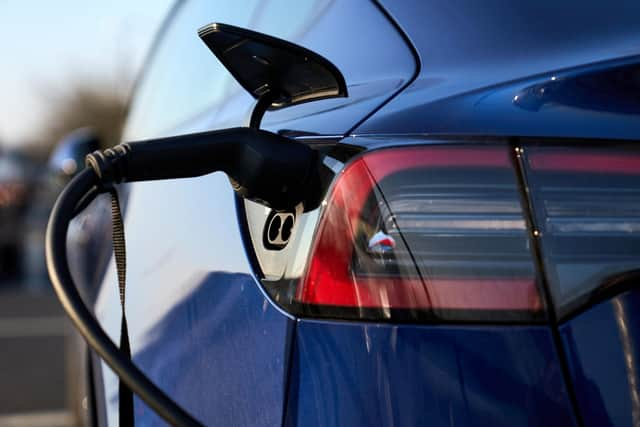Electric vehicles are not the answer to the climate change challenge - Yorkshire Post Letters
Chris Snow, being a proud owner of an EV, clearly rejoices in its low running costs and believes that they are a key component of a "cleaner greener future" (Letters 15 May). Some inconvenient facts may give him cause for more sober reflections.
The current generation of lithium batteries that power this mode of transport are manufactured principally from either hard rock spodumene in Australia or from salt brines in South America.
Advertisement
Hide AdAdvertisement
Hide AdIn the first instance it requires 500 tonnes of ore to produce just one tonne of lithium, a process that emits a staggering 7,500 tonnes of CO2.


Mr Snow's modest Nissan Leaf, which remains exempt from vehicle excise duty, with its 400 kg battery would be responsible for around 17.5 tonnes of this.
If lithium is sourced from the salt flats of Chile where the rainfall is just 3.0 mm per year, it would have needed 500,000 gallons (2,273,000 litres) of extremely precious water to produce a tonne of lithium.
This is causing widespread pollution and loss of biodiversity as well as resulting in serious impacts on human health and wellbeing.
Advertisement
Hide AdAdvertisement
Hide AdIt is projected that by 2040 there may be two billion cars in the world of which around four hundred million (20 per cent) will be EVs. This would replace just 6 per cent of petroleum demand.
When considered in addition to the battery-centric and green energy future envisaged by misguided environmentalists and politicians, global mining for the vital lithium, graphite, rare earths and cobalt would need to increase by at least 500 per cent.
Then there is the massive unresolved question of disposal to consider. It is obvious that hydrocarbons are a finite resource but their high energy density means that they will remain a vital component of transition for the foreseeable future.
Instead of the massive subsidies that support dilute, unreliable energy technologies such as wind and solar and the misguided promotion of EVs that hide behind a green smokescreen, funding should be directed to basic, radical research and development.
